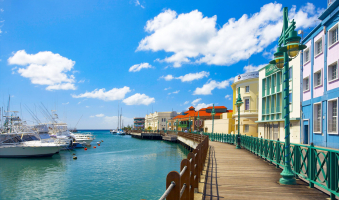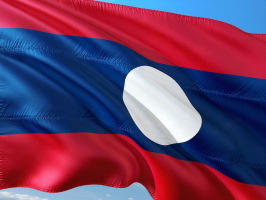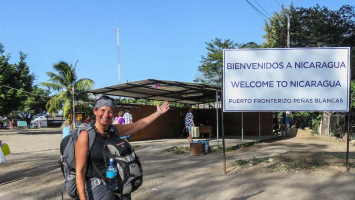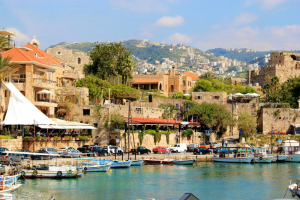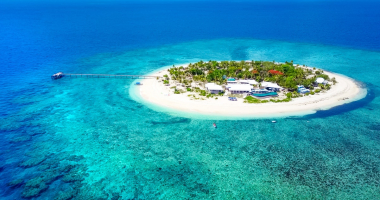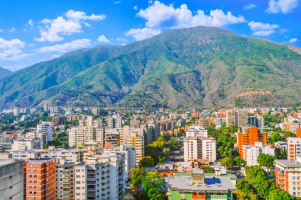Top 10 Things About Haiti You Should Know
Haiti's Republic has a lot to offer. The country's rich history and cultural richness have fashioned it into what it is today. While Haiti was once associated ... read more...with poverty and natural disasters more than any other Caribbean country, it has evolved into a distinct and popular tourist destination. Don't be afraid to schedule your vacation, prepare your things, and read Things You Should Know About Haiti before you go.
-
The climate of Haiti is tropical, humid, and hot all at the same time. The air temperature here fluctuates more during the day than it does from season to season (the average temperature is +25 degrees Fahrenheit). The country's holiday season is disrupted by two rainy seasons: one in April that lasts until the end of June, and the other in September that lasts until the second part of November. Except from June to September, when tropical hurricanes occur here, the entire season is bright and sunny, so it is recommended to arrange a trip to Haiti from December to March.
Rainfall continues to build in April, becoming heavy by May—all while temperatures soar to uncomfortable levels, especially considering the excessive humidity. Haiti is at its warmest from June through August, and while rainfall falls slightly during these months, August and September are peak hurricane season, so be cautious. Hurricanes are more powerful here because of inadequate construction regulations and widespread deforestation, which cause flooding and landslides. The Carnival season lasts several weeks in January and February, with floats, processions, music, and dancing culminating in Mardi Gras.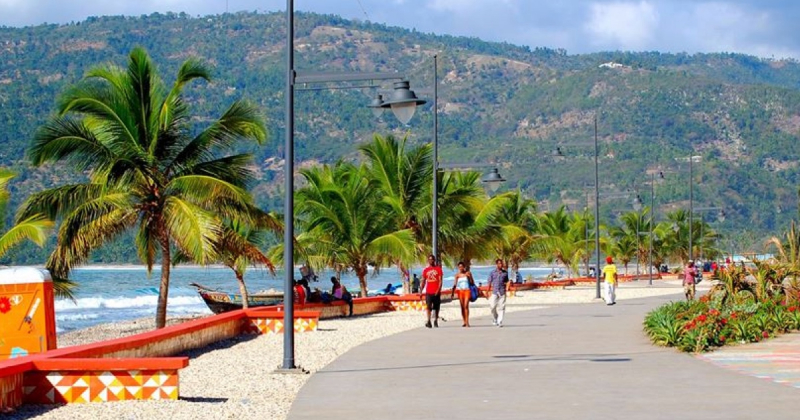
tripsavvy.com 
tripsavvy.com -
One of the Things About Haiti You Should Know is that it is a country where everyone can relax. There is a wide range of activities available to tourists visiting Haiti. Haiti is ideal for families, young individuals, and those seeking active vacations. If you are planning a family vacation, be sure to take an eco-tour to the magnificent Haiti resorts of Pentonville, Jacmel, Croix-de-Bouquet, or Cap-Etienne, which are also balneological, and where you can visit vibrant festivals, interesting exhibitions, exciting excursions, and animation events in addition to the wellness part of the vacation. Port-au-Prince (Haiti's magnificent capital), Croix-de-Bouquet, and Jacmel will appeal to young people. There are several nightclubs, concerts and shows, sports complexes with exercise facilities, and bike and roller skate routes.
Scuba diving, surfing, and kite surfing are all popular activities on the coasts of Petionville, Cap-Athena, and Croix-des-Bouquets. Hiking in the National Parks of Macaya and La Visite will also take you through rain forests, alpine meadows, waterfalls, and complicated cave systems. Horse-drawn paths, which typically run through mountainous terrain, are also accessible. Please keep in mind, however, that while the country's resorts are regarded the most popular and stylish worldwide Haiti resorts, rates for practically everything are rather high.
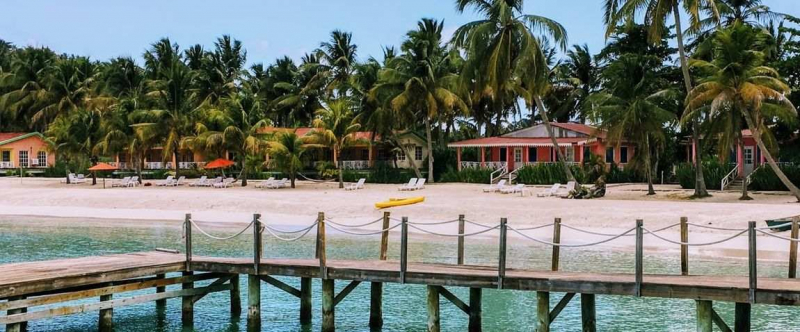
pickvisa.com 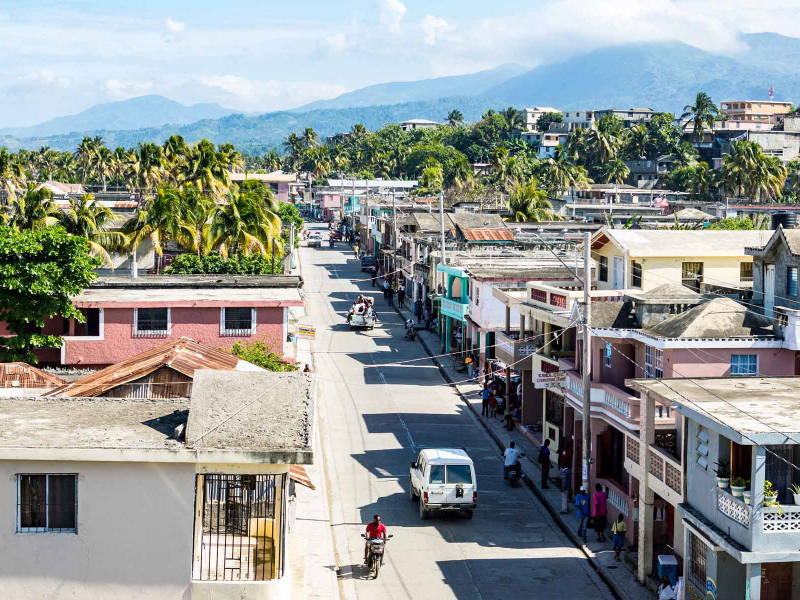
pickvisa.com -
Along with the Cote d'Azur and picturesque bays, Haiti has old architecture, historical sites, and distinctive natural formations. Unspoiled misty woods in the Macaya Peak Park, stunning pink flamingos on Lake Trois Caiman, the resort island of Labadie with sunny Haiti beaches and a variety of entertainment, which is visited by a cruise liner, and much more can be found in Haiti. Port-au-Prince, named after a French prince, is the capital of Haiti and one of the top sites to visit in Haiti. It is reasonable to say that it is a city of opposites. There are decaying colonial houses where the aroma of home-cooked food lingers, as well as the elite district of Pentonville, which is home to high-end hotels, clubs, fashionable stores, and restaurants.
Because the city is deemed safe, there is a steady influx of tourists interested in learning about Haitian culture. On the other hand, the capital of Haiti is a commercial hub where things are marketed everywhere possible. Because Haiti lacks dedicated pharmacies, you may buy everything and even drugs in Port-au-Prince. There is also the Cathedral of Port-au-Prince, a spectacular edifice in the classical Gothic style that took about 30 years to complete. It was destroyed by the Haiti earthquake in 2010, but its grandeur was restored, and the Cathedral now delights locals and visitors that visit the island of Haiti, where it is located.
You will love visiting the National Museum of Haiti, which includes a collection of numismatics, exquisite artworks, and everyday life components in its exhibition documentation. The Art Center hosts exhibitions of excellent art from Haiti, the United States, and Europe. The museum also has items from Haiti's emperors, such as the shot from King Henri Christophe's gun and the anchor from Christopher Columbus's ship, the Santa Maria.
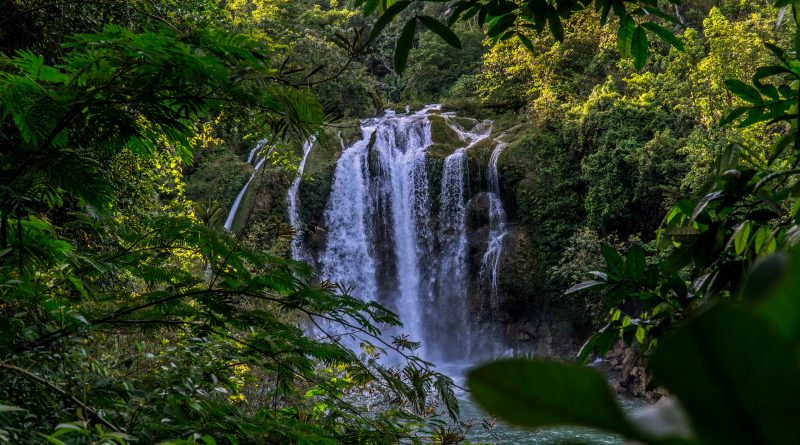
cbcbio.org 
cbcbio.org -
The native Haitian community is not particularly kind to visitors, particularly those with fair complexions, but the calculation is more essential. Each resident believes the traveller has sufficient funds and will provide him with food and drink. Consider the reality that most Haitians dislike shooting. A visitor who pulls out a camera and takes a photograph of a local or records an interview with him is immediately labeled as an enemy. In any case, avoid Sit-Soli, which are massive slums known as American cities that are separated into blocks. The situation here is so serious that the UN sends a garrison of Blue Helmets here on a regular basis to provide security. So, to avoid ruining your holiday in Haiti, avoid going there.
Learn a few greetings in the Creole language and welcome people with respect. This shows that you're attempting to understand the country and its customs, and that you've done your research. You may encounter guardedness from Haitians at first, but if you adopt an attitude of wanting to learn and experience, chances are you will be able to participate in some intriguing and cross-cultural talks with locals. Haitians are gregarious and ready to share: provide information about yourself and display a genuine want to know the individuals with whom you are conversing. Share a meal and make a new friend!

loveachild.com 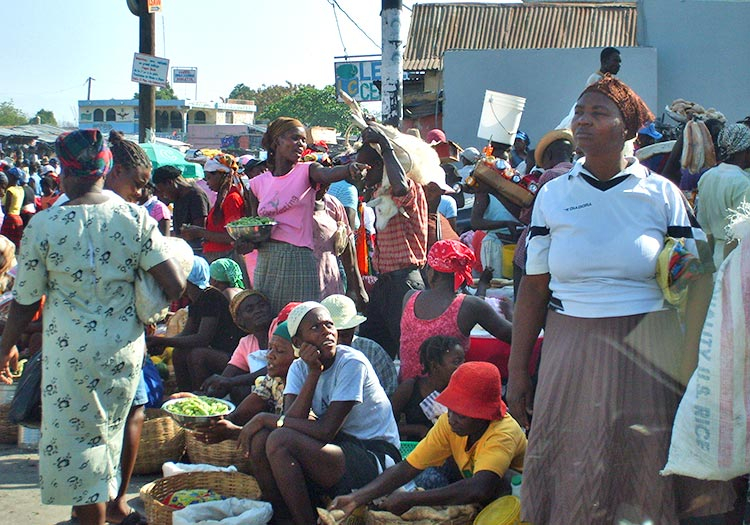
loveachild.com -
Haitian cuisine is one of the Things About Haiti You Should Know, like the rest of the country, is highly diverse. Restaurants provide Asian, African, and European food. As a result, everyone will be able to locate something unique to them. Many people are surprised to learn that Haitians employ exotic fish in their meals. They also mix oddities, such as cooking maize in fish broth, smoking herring with pears, fowl with bananas, and rum with soda. The natives primarily consume bananas and rice. Many people have never tasted chicken flesh since it is considered a delicacy.
Haitian cuisine is made up of Haitian cooking traditions and customs. It is a Creole cuisine that evolved from a fusion of numerous culinary types that occupied the western half of Hispaniola, including African, French, indigenous Tano, Spanish, and Arab influences. Haitian cuisine is akin to "criollo" (Spanish for "creole") food and to the rest of the Latin Caribbean, although it differs in key ways from its regional counterparts. The tastes are robust and spicy, with African and French influences, as well as prominent adaptations from local Tano and Spanish traditions. Due to an Arab influx that has established many enterprises, Levantine influences have made their way into mainstream society.

whetstonemagazine.com 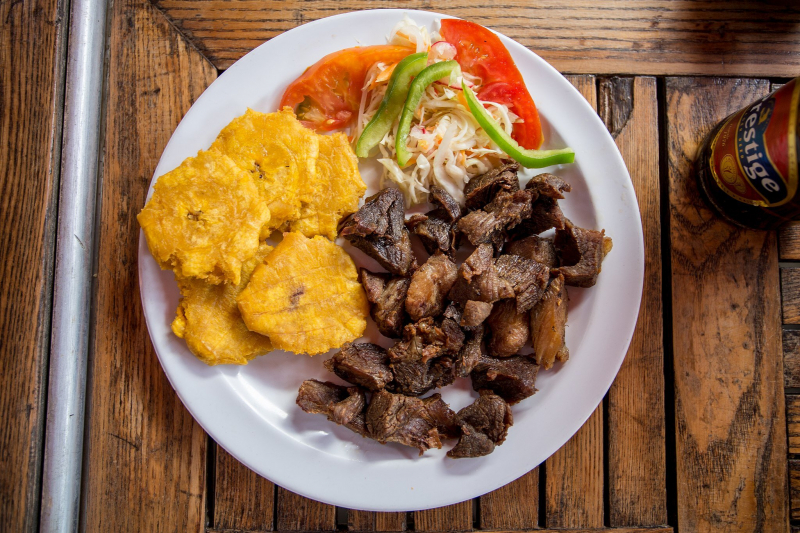
whetstonemagazine.com -
Currency is one of the Things About Haiti You Should Know. The gourde is Haiti's official currency, but it is not usually utilized in payments. International currency is also in circulation, which means that US dollars are exactly the same here, and you can even see prices in dollars on store price tags. Convenient.
The Gourde is Haiti's currency. Despite the fact that the US dollar is extensively used on menus and pricing lists, the Haitian government decided in 2018 that all business transactions would be conducted in Gourdes. However, many businesses continue to accept US currency. Avoid using banks or withdrawing cash from public cash machines (see Crime). Don't exchange cash on the street. In Port-au-Prince, you may exchange US dollars or travelers' checks for local money at big hotels or stores. Most credit cards are accepted at big hotels, as well as in select stores and businesses in major towns and cities. There is, nevertheless, a possibility of credit card cloning and theft.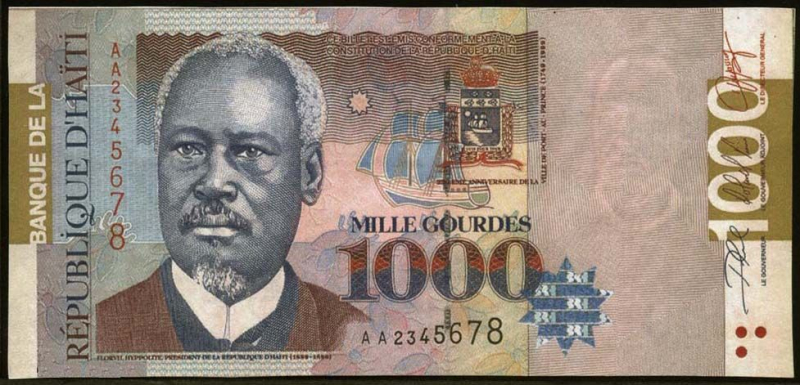
timothyschwartzhaiti.com 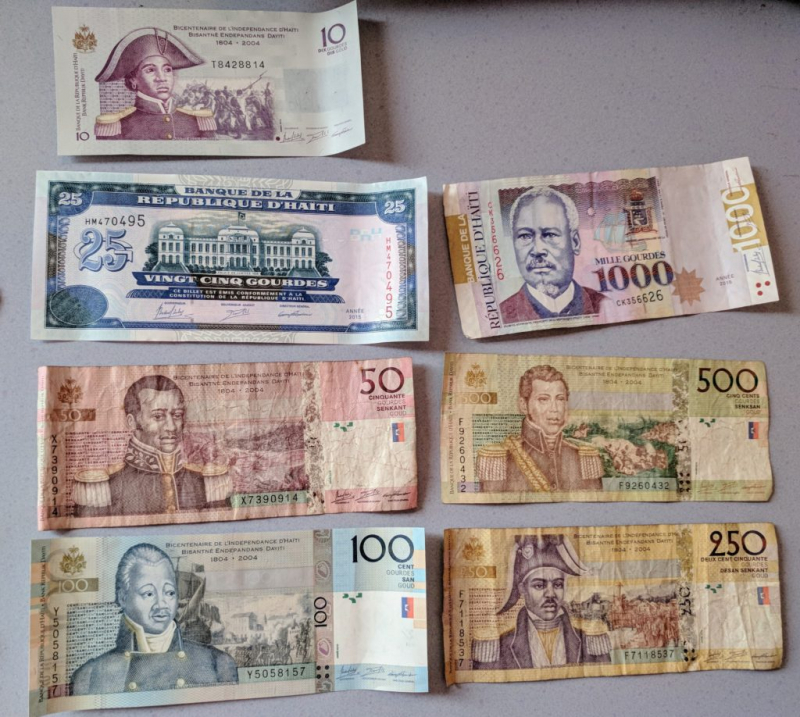
timothyschwartzhaiti.com -
The official languages of Haiti are French, Creole, and Haitian. While both French and Haitian Creole are official languages in the nation, French is only spoken by a small fraction of the population (most sources estimate between 5 percent and 10 percent of Haitians speak French fluently and use it regularly in their day-to-day lives). Nonetheless, the language retains a strong grip on the country—for example, most Haitian primary school pupils are educated in French, despite the fact that the great majority of instructors and students speak the language with limited fluency. When Haiti obtained independence from France, the majority of the elite survivors of the Haitian Revolution spoke French; as a result, legislation was done entirely in French, despite the fact that the whole country spoke Haitian Creole as its native language.
Although French is closely connected with the country's elite, many of the country's wealthiest residents use Haitian Creole as their first language. Historically, many of the country's elites saw Haitian Creole as a misspoken, error-ridden version of French (despite much of the language's lexicon is derived from French, while the syntax is notably different). It wasn't until 1987 that Haitian Creole was legally acknowledged alongside French, rather than as a bastardized variant of French.

french.lovetoknow.com 
french.lovetoknow.com -
If you can catch a festival when church teams made up of young people compete, you will witness an extraordinary show. Children put their faith to the test by competing in songs and dances. The voodoo festival is another major event for the locals. If you are permitted to attend this event, bring a bottle of whiskey with you.
It's the must-see event on the Voodoo calendar, a celebration of the voodoo religion and the cults linked with it that gathers fetish priests, adepts, traditional chiefs, and observers from all over the world. There are ceremonial sacrifices, as well as dancing, drinking, and incessant drumming. Devotees adopt the identities of gods, dressing up and evolving into that deity as they travel, with the magical realm nearby. The Zangbeto resemble huge walking grass skirts, while the Egungun — the most powerful – are totally clothed in colorful patchwork garments. They emerge from the jungle and make their way through the settlement, springing at any spectator who gets too close. You don't want the Egun to touch you since he may kill you! When they arrive at the village center, they execute a type of dance aimed to frighten the public, which is frequently met with roars and laughs.
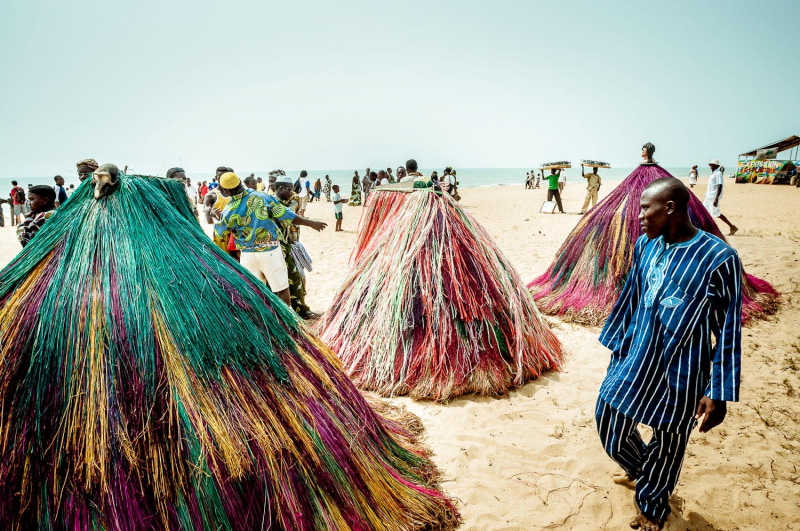
georghofer.com 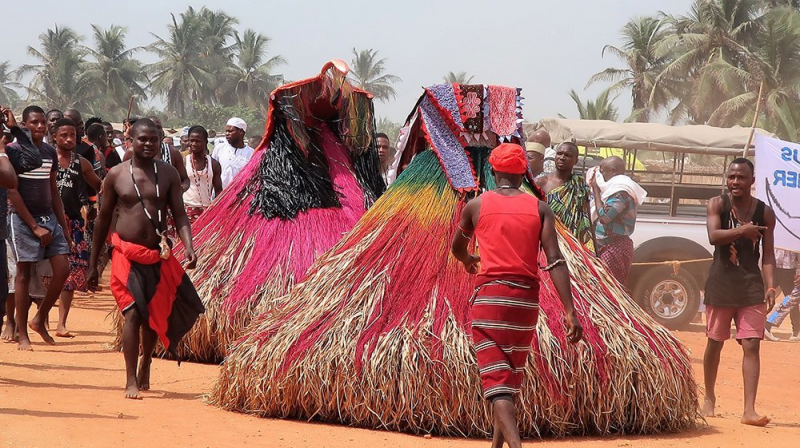
georghofer.com -
Haiti's transportation system is extremely underdeveloped, that is one of the Things About Haiti You Should Know. The most prevalent and unusual kind of transportation here are "Tap-tap" buses, which resemble trucks and pickup trucks. Their design is unique and colorful, with images of Hollywood celebs, comic books, biblical texts, and even portraits. Nonetheless, each has an inscription thanking the Almighty.
Few Haitians possess or have access to a personal automobile, whether they live in the country or the city, and even fewer have access to more popular modes of public transportation such as city buses, trains, or subways. Instead, most Haitians walk, bike, or catch a ride on a 'tap tap'. A tap tap is essentially the Haitian equivalent of an American taxi cab, with certain buses also serving as tap taps. Donkeys, like motorbikes, are occasionally used to bring items to market or up a slope to a nearby community.
Many countries throughout the world use cattle to assist in moving various sorts of freight, and Haiti is no exception. Haitians have long understood the value of donkeys, mules, burros, and other similar animals in bringing commodities to various sections of the island, and they make use of these resources whenever available.
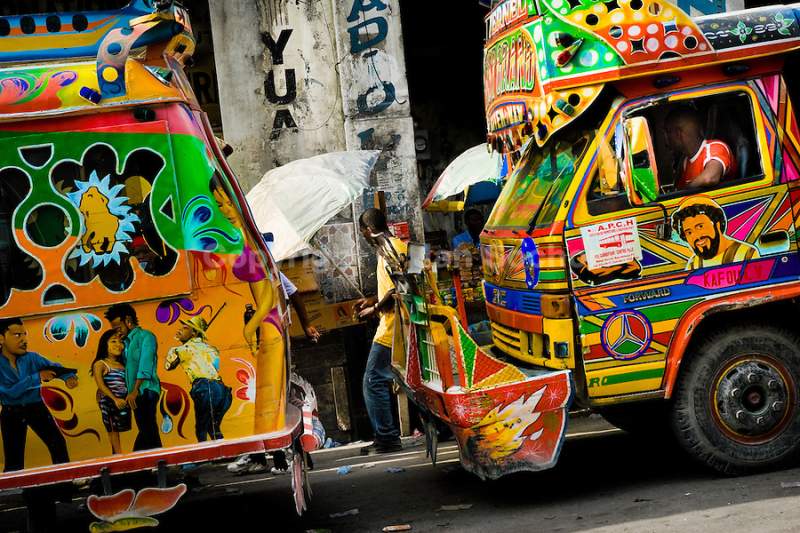
latin-america.photoshelter.com 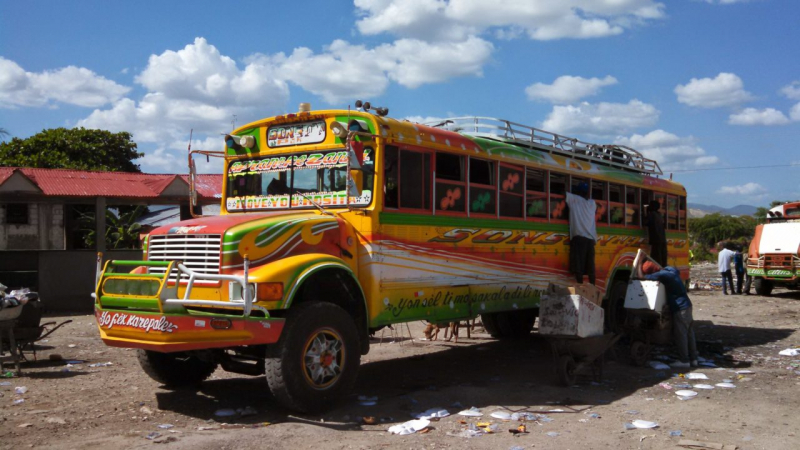
latin-america.photoshelter.com -
The inhabitants of Haiti live a passive lifestyle, that is one of the Things About Haiti You Should Know. People sit at home all day or stroll around the house since there aren't enough jobs to go around. The fact that there is often no light in houses is an uncomfortable scenario. People bathe and cook using store-bought water because there is no centralized water supply. Religion has a significant impact. People who wish to acquire a visa must go to church since religion has such a huge influence.
Locals with a specific amount of money open a church, which is a very profitable and successful company. On the map, Haiti is located in a tectonic zone, which explains why earthquakes are often felt on the island of Haiti, causing concern among locals. To be more specific, Haiti is located in the Antilles seismic loop zone on the map. On January 12, 2010, Haiti's greatest earthquake struck the island.
nbcnews.com 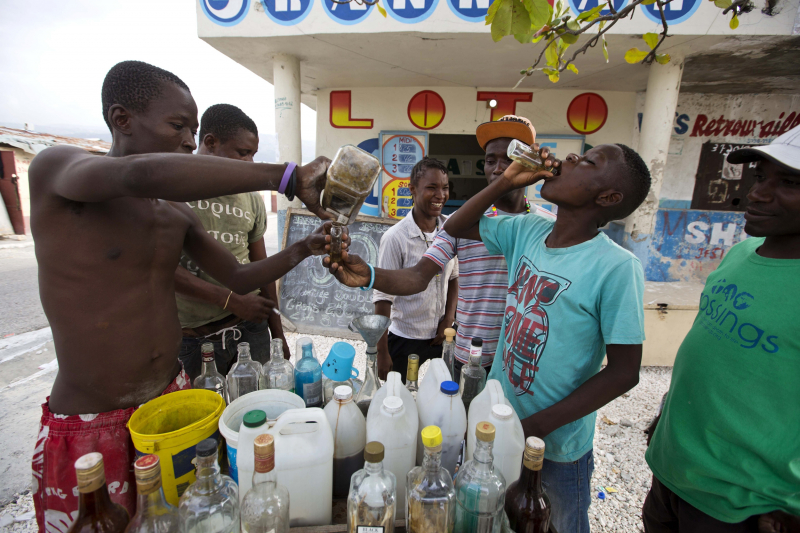
nbcnews.com












